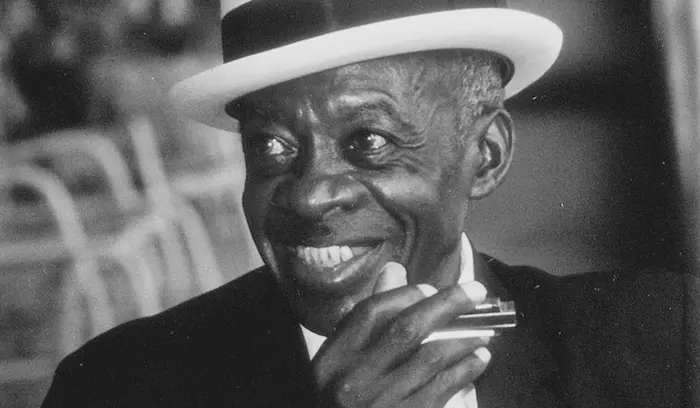Deford Bailey is a name that holds a special place in the annals of country music history. As an African American musician who rose to fame in the early 20th century, Bailey’s contributions to country music were significant and far-reaching. His mastery of the harmonica and his unique musical style helped shape the genre during its formative years. This article delves into Bailey’s life, his musical career, and his enduring legacy in the world of country music.
I. Early Life and Influences
Childhood and Beginnings
Deford Bailey was born on December 14, 1899, in Smith County, Tennessee. He was the son of John Henry Bailey and Mary Ella Bailey. From a young age, Bailey showed a remarkable talent for music. He began playing the harmonica at the age of three, and his family recognized his exceptional ability.
Bailey contracted polio when he was a child, which left him bedridden for a year. During this time, he spent hours practicing the harmonica, developing a unique style that would later become his trademark. The sounds of his rural surroundings, such as trains, animals, and farm life, heavily influenced his music.
Musical Influences
Bailey’s musical influences were diverse. He was deeply inspired by the folk and blues music he heard in his community. His playing style reflected the sounds of the rural South, blending elements of blues, folk, and country music. This fusion of styles set Bailey apart from other musicians of his time.
II. Rise to Fame
Grand Ole Opry Debut
Bailey’s big break came in 1926 when he was invited to perform on WSM’s Barn Dance, a radio program that would later become known as the Grand Ole Opry. His performance was a hit, and he quickly became a regular on the show. Bailey’s signature piece, “Pan American Blues,” mimicked the sounds of a train and captivated audiences with its intricate and expressive harmonica playing.
Pioneering African American Presence in Country Music
Bailey’s presence on the Grand Ole Opry was groundbreaking. At a time when segregation and racial prejudice were rampant in the United States, Bailey stood out as one of the few African American performers in country music. His success challenged racial barriers and opened doors for future generations of black musicians.
Musical Style and Techniques
Bailey’s harmonica playing was marked by its virtuosity and innovation. He was known for his ability to imitate sounds from nature and machinery, creating a vivid auditory experience for his listeners. His repertoire included pieces like “Fox Chase,” which imitated the sounds of a fox hunt, and “Davidson County Blues,” which showcased his blues influences.
III. Career Highlights
Recording Career
In addition to his radio performances, Bailey also made recordings for several record labels. His recordings, though limited, were influential and showcased his diverse musical talents. Songs like “John Henry” and “Muscle Shoals Blues” became popular and further cemented his place in country music history.
Touring and Live Performances
Bailey toured extensively throughout the United States, performing at various venues and events. His live performances were known for their energy and creativity. He often played multiple instruments, including the guitar and banjo, in addition to the harmonica. Bailey’s versatility and showmanship made him a favorite among audiences.
IV. Challenges and Discrimination
Racial Barriers
Despite his success, Bailey faced significant challenges due to his race. The Jim Crow era was a time of intense racial segregation and discrimination in the United States. Bailey often had to navigate a hostile environment, both on and off stage. He was sometimes forced to enter venues through back doors and was not always allowed to stay in the same hotels as his white counterparts.
Health and Financial Struggles
Bailey’s career was also impacted by health issues related to his polio. Additionally, he faced financial difficulties, as he did not receive the same level of compensation and recognition as many of his white peers. These challenges, however, did not diminish his passion for music or his determination to share his talents with the world.
V. Legacy and Influence
Influence on Future Generations
Bailey’s influence on country music and future generations of musicians cannot be overstated. His innovative harmonica playing and unique musical style inspired many artists who followed in his footsteps. Musicians such as Roy Acuff, Bill Monroe, and Hank Williams cited Bailey as an influence on their work.
Recognition and Honors
Although Bailey’s contributions were not fully recognized during his lifetime, he has since been honored and celebrated for his role in shaping country music. In 2005, he was posthumously inducted into the Country Music Hall of Fame, a testament to his enduring impact on the genre.
Educational and Cultural Impact
Bailey’s story also serves as an important reminder of the contributions of African American musicians to country music. His legacy is a powerful example of how music can transcend racial and cultural barriers. Today, Bailey’s life and music are studied in academic settings and celebrated in cultural institutions, ensuring that his contributions will not be forgotten.
See Also: Which Country Has the Best Phonk Music?
VI. Conclusion
Deford Bailey’s journey from a small town in Tennessee to the stages of the Grand Ole Opry is a remarkable story of talent, perseverance, and innovation. His contributions to country music are significant and enduring, and his legacy continues to inspire musicians and fans alike. Bailey’s life and career serve as a testament to the power of music to bring people together and break down barriers. His story is an essential chapter in the history of country music, and his influence will be felt for generations to come.

